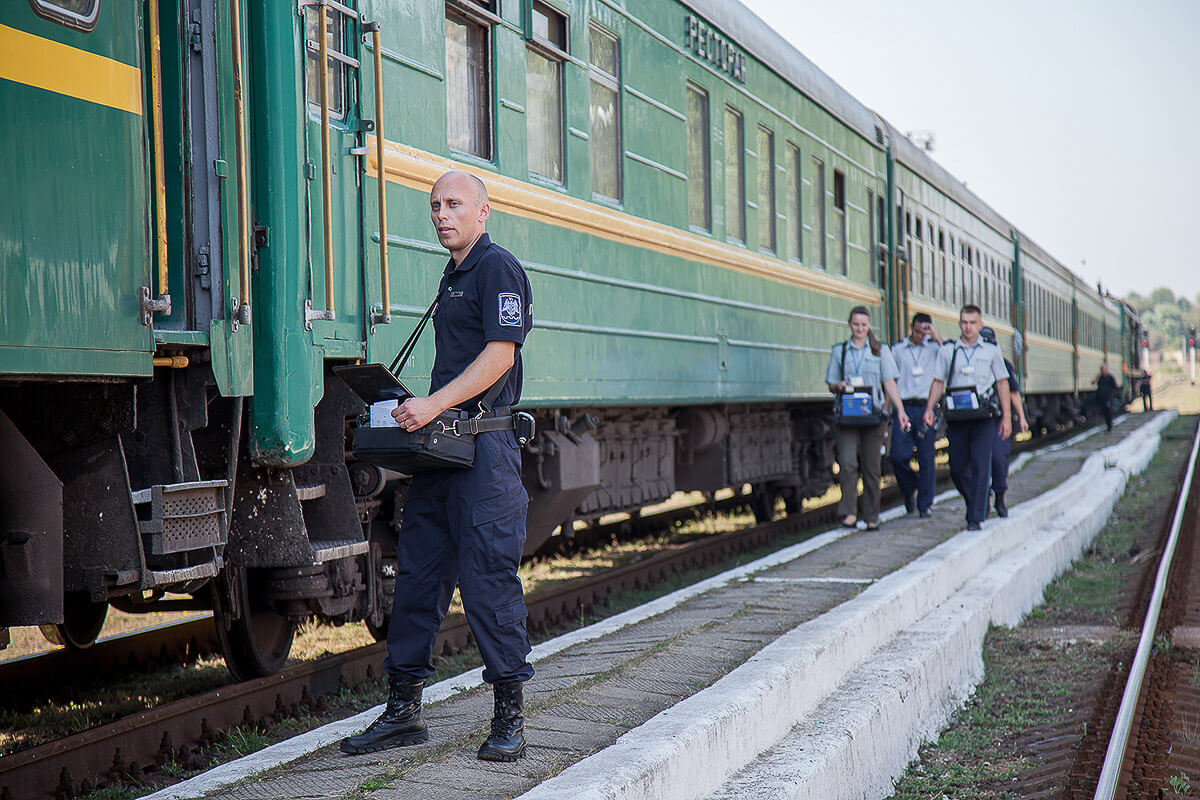Cross-Border Mechanisms For Effective Crime Fighting

Table of Contents
International Legal Frameworks and Treaties
Effective cross-border crime fighting relies heavily on robust international legal frameworks. These frameworks provide the necessary legal basis for cooperation and the pursuit of justice across national boundaries. Two key elements are extradition treaties and the jurisdiction of international criminal courts.
Extradition Treaties
Extradition, the formal process of transferring a suspect from one country to another for prosecution, is a cornerstone of international criminal justice. However, the process is often complex, hampered by differing legal systems, political considerations, and bureaucratic hurdles. Successful international extradition hinges on strong bilateral or multilateral agreements.
- Mutual Legal Assistance Treaties (MLATs): These treaties provide a framework for countries to assist each other in criminal investigations, including the exchange of evidence and witness testimony. MLATs are crucial for building cases against individuals involved in cross-border crime.
- Interpol's Role: The International Criminal Police Organization (Interpol) plays a vital role in facilitating extradition by acting as a central point of contact and providing logistical support. They assist in locating fugitives and coordinating requests between nations.
- Obstacles to Extradition: Challenges include differing legal definitions of crimes, concerns about fair trial guarantees in the requesting state, and political sensitivities that can override legal considerations. For example, a country might refuse extradition if it fears the individual will face torture or the death penalty.
Successful examples of cross-border criminal justice through extradition include cases involving drug trafficking kingpins and perpetrators of international terrorism. These successes highlight the importance of efficient and streamlined extradition processes in the fight against transnational crime. Effective use of cross-border criminal justice mechanisms requires consistent effort and commitment from all participating nations.
International Criminal Courts (ICC) and Jurisdiction
The International Criminal Court (ICC) plays a crucial role in prosecuting individuals for war crimes, crimes against humanity, and genocide. While its jurisdiction is limited, the ICC complements national courts by providing a mechanism for prosecuting those who escape national justice. The ICC's investigations can significantly impact national crime fighting strategies by providing crucial evidence and paving the way for domestic prosecutions.
- Limitations of ICC Jurisdiction: The ICC only has jurisdiction over crimes committed within the territory of a state party or by nationals of a state party. It also adheres to the principle of complementarity, meaning it will only intervene if national courts are unwilling or unable to genuinely prosecute.
- Complementarity with National Courts: The ICC aims to complement, not replace, national justice systems. Ideally, national courts handle the vast majority of criminal cases, with the ICC serving as a last resort for grave international crimes.
- Impact on National Strategies: ICC investigations can have a ripple effect on national crime fighting efforts by stimulating reforms to domestic legal systems and improving investigative capabilities. The ICC's focus on international criminal law helps establish global standards for accountability.
Enhanced Information Sharing and Intelligence Cooperation
Effective cross-border investigations depend on seamless information sharing and intelligence cooperation. This requires robust mechanisms for collaboration between national law enforcement agencies and international organizations.
Interpol and Other International Agencies
Interpol, Europol (for European countries), and the UN Office on Drugs and Crime (UNODC) are vital players in facilitating information exchange and intelligence cooperation. They maintain centralized databases, coordinate joint investigative teams, and provide training and technical assistance to member countries.
- Centralized Databases: Databases containing information on wanted individuals, stolen property, and criminal techniques allow law enforcement agencies to quickly access vital information regardless of geographical location.
- Joint Investigative Teams (JITs): JITs bring together investigators from different countries to work collaboratively on complex cross-border investigations, pooling resources and expertise.
- Real-Time Information Exchange: Secure communication channels enable the near-instantaneous sharing of critical information, crucial for apprehending fugitives and disrupting criminal activities.
Successful cross-border operations, such as those targeting international drug trafficking rings or dismantling cybercrime networks, frequently rely on the collaborative efforts of these agencies, proving the efficacy of international police cooperation.
Cybersecurity Cooperation
The rise of cybercrime demands heightened international cooperation. Data breaches, online fraud, and cyber terrorism often involve actors located in multiple jurisdictions, necessitating a coordinated global response.
- Jurisdictional Challenges in Cyberspace: Determining jurisdiction in cyberspace can be complex, as online activities can transcend national boundaries. International agreements and legal frameworks are needed to address this challenge.
- Standardized Legal Frameworks: Harmonizing national laws and creating consistent international legal standards is essential to prosecute cybercriminals effectively and deter future crimes.
- Public-Private Partnerships: Collaborative efforts between law enforcement agencies, technology companies, and cybersecurity experts are crucial for improving intelligence sharing, developing effective investigative techniques, and enhancing cross-border data protection.
Joint Law Enforcement Operations and Training
Addressing cross-border crime effectively necessitates coordinated law enforcement actions and comprehensive training initiatives.
Joint Task Forces
Establishing joint task forces (JTFs) comprising officers from multiple countries allows for a concentrated, coordinated response to specific cross-border crime issues. These forces combine resources, expertise, and manpower, yielding enhanced effectiveness.
- Logistical and Legal Challenges: JTFs require careful planning to overcome logistical challenges, such as language barriers, differing operational procedures, and legal constraints regarding jurisdiction and authority.
- Shared Training and Communication Protocols: Standardized training and clear communication protocols are crucial for effective collaboration within JTFs.
- Real-World Examples: Successful JTF operations against organized crime syndicates and terrorist networks have demonstrated the value of this approach in international collaboration.
Cross-border Training and Capacity Building
Investing in training programs and capacity-building initiatives strengthens the skills and expertise of law enforcement officers involved in cross-border crime fighting.
- Standardized Training Procedures: Shared training standards ensure consistency in investigative techniques, evidence collection, and information sharing.
- Sharing Best Practices: Knowledge exchange across borders enables officers to learn from each other's experiences and improve their effectiveness.
- Specialized Units: Developing specialized units focused on particular types of cross-border crime, such as cybercrime or human trafficking, allows for enhanced expertise and focused investigations.
Conclusion
Effective cross-border crime fighting demands robust mechanisms for international cooperation. This includes establishing strong legal frameworks like extradition treaties and the ICC, fostering efficient information sharing through agencies like Interpol, and promoting joint law enforcement operations and targeted training initiatives. By strengthening these mechanisms and continuing investment in global security collaborations, nations can more effectively combat transnational criminal organizations and safeguard their citizens. Continued refinement of these cross-border crime fighting strategies is vital for global security in the face of ever-evolving criminal tactics.

Featured Posts
-
 Rossiysko Myanmanskiy Biznes Forum V Moskve Itogi I Dostizheniya
May 13, 2025
Rossiysko Myanmanskiy Biznes Forum V Moskve Itogi I Dostizheniya
May 13, 2025 -
 Recent Obituaries Local Residents Who Passed Away
May 13, 2025
Recent Obituaries Local Residents Who Passed Away
May 13, 2025 -
 Dodgers 11 10 Loss Offensive Fireworks Not Enough
May 13, 2025
Dodgers 11 10 Loss Offensive Fireworks Not Enough
May 13, 2025 -
 Funeral Arrangements For Teenager Killed In School Stabbing
May 13, 2025
Funeral Arrangements For Teenager Killed In School Stabbing
May 13, 2025 -
 The Kyle Tucker Report And Its Impact On Cubs Fans
May 13, 2025
The Kyle Tucker Report And Its Impact On Cubs Fans
May 13, 2025
Latest Posts
-
 Pregnant Cassie And Husband Alex Fine Shine At Mob Land Premiere
May 13, 2025
Pregnant Cassie And Husband Alex Fine Shine At Mob Land Premiere
May 13, 2025 -
 Cassie Announces Third Pregnancy
May 13, 2025
Cassie Announces Third Pregnancy
May 13, 2025 -
 Cassie Ventura And Alex Fines Red Carpet Appearance Photos From The Mob Land Premiere
May 13, 2025
Cassie Ventura And Alex Fines Red Carpet Appearance Photos From The Mob Land Premiere
May 13, 2025 -
 Cassie Ventura And Alex Fines First Red Carpet Appearance Since Pregnancy Announcement
May 13, 2025
Cassie Ventura And Alex Fines First Red Carpet Appearance Since Pregnancy Announcement
May 13, 2025 -
 Cassie Ventura Pregnant Expecting Third Child
May 13, 2025
Cassie Ventura Pregnant Expecting Third Child
May 13, 2025
